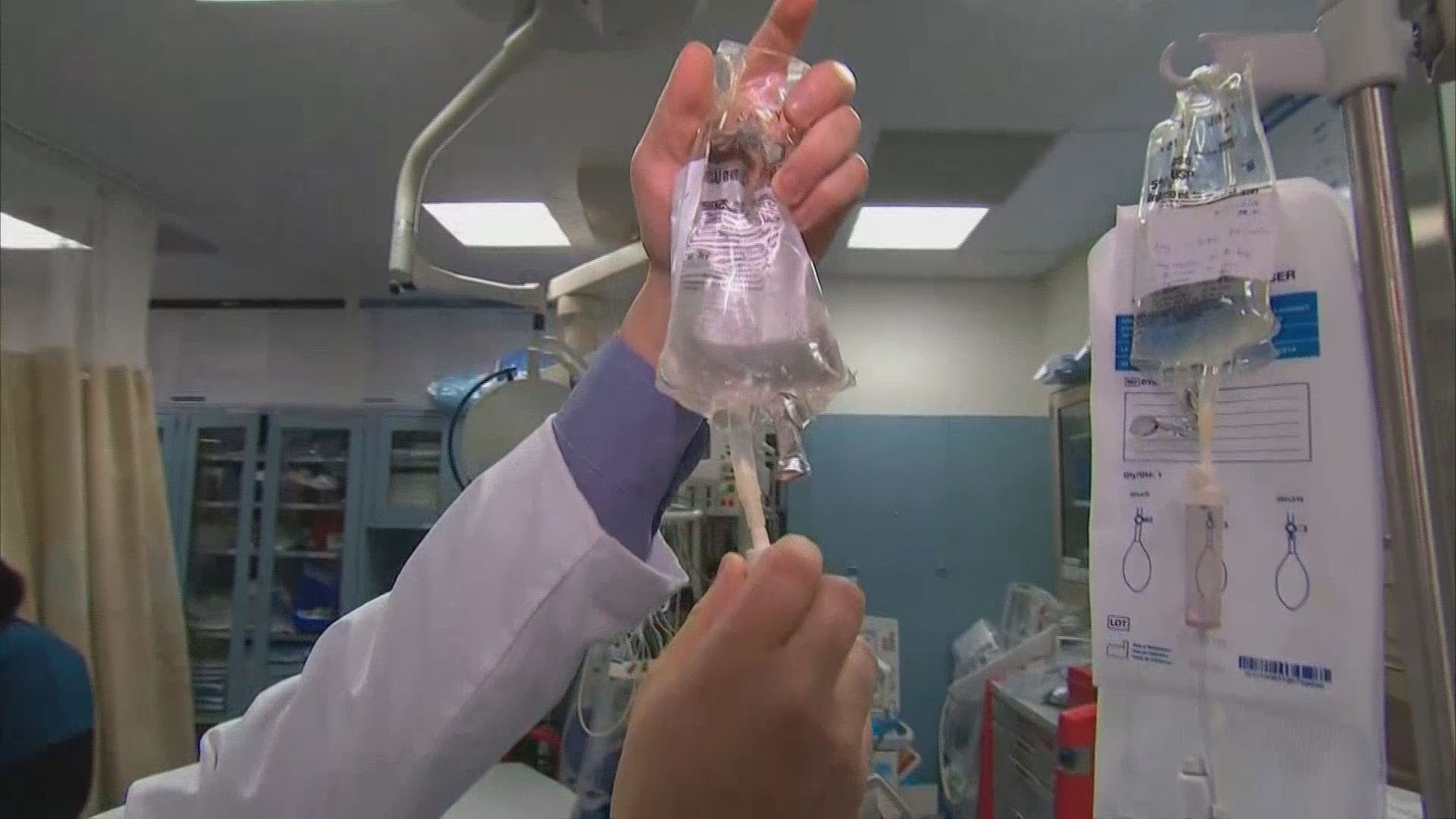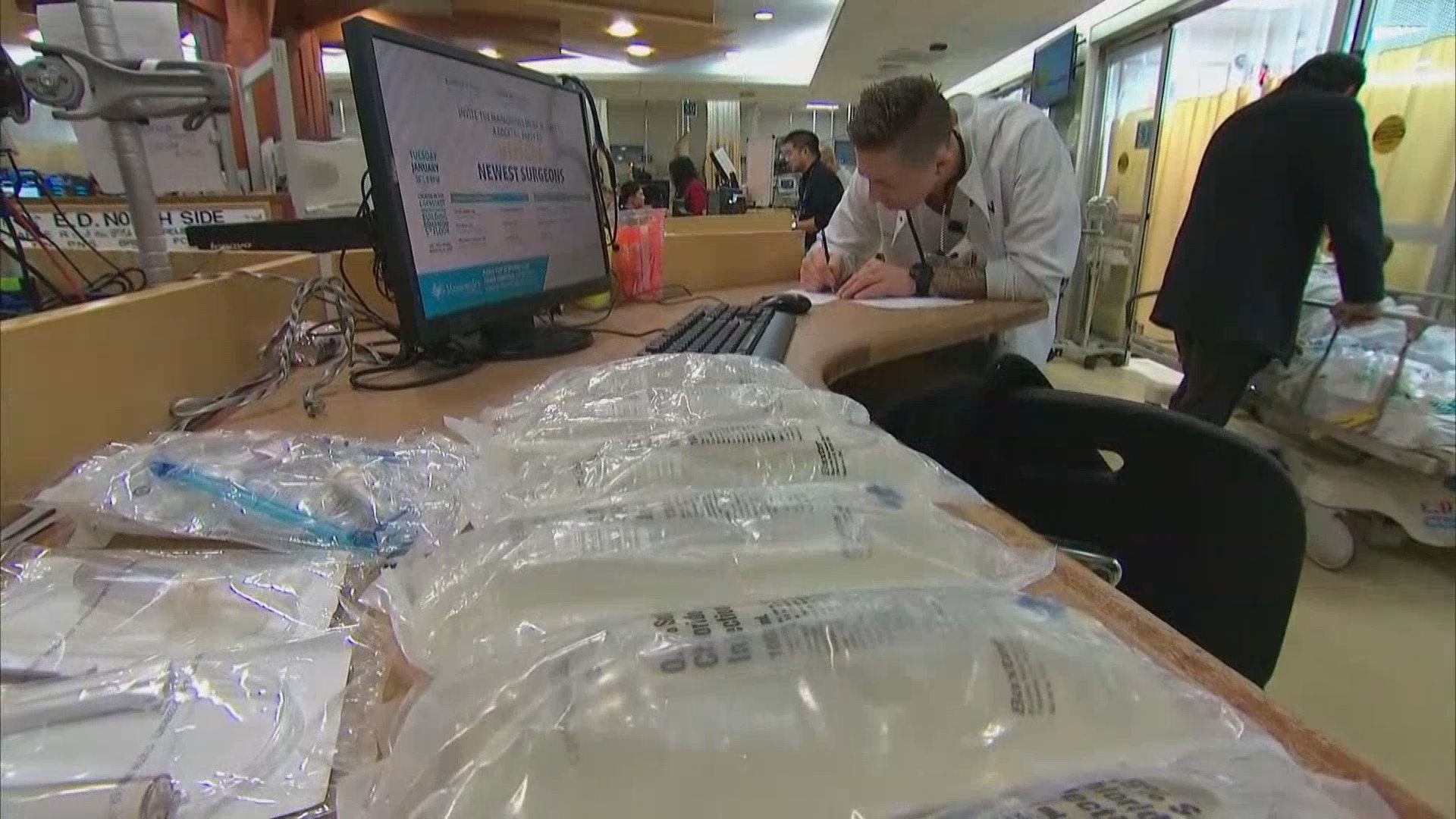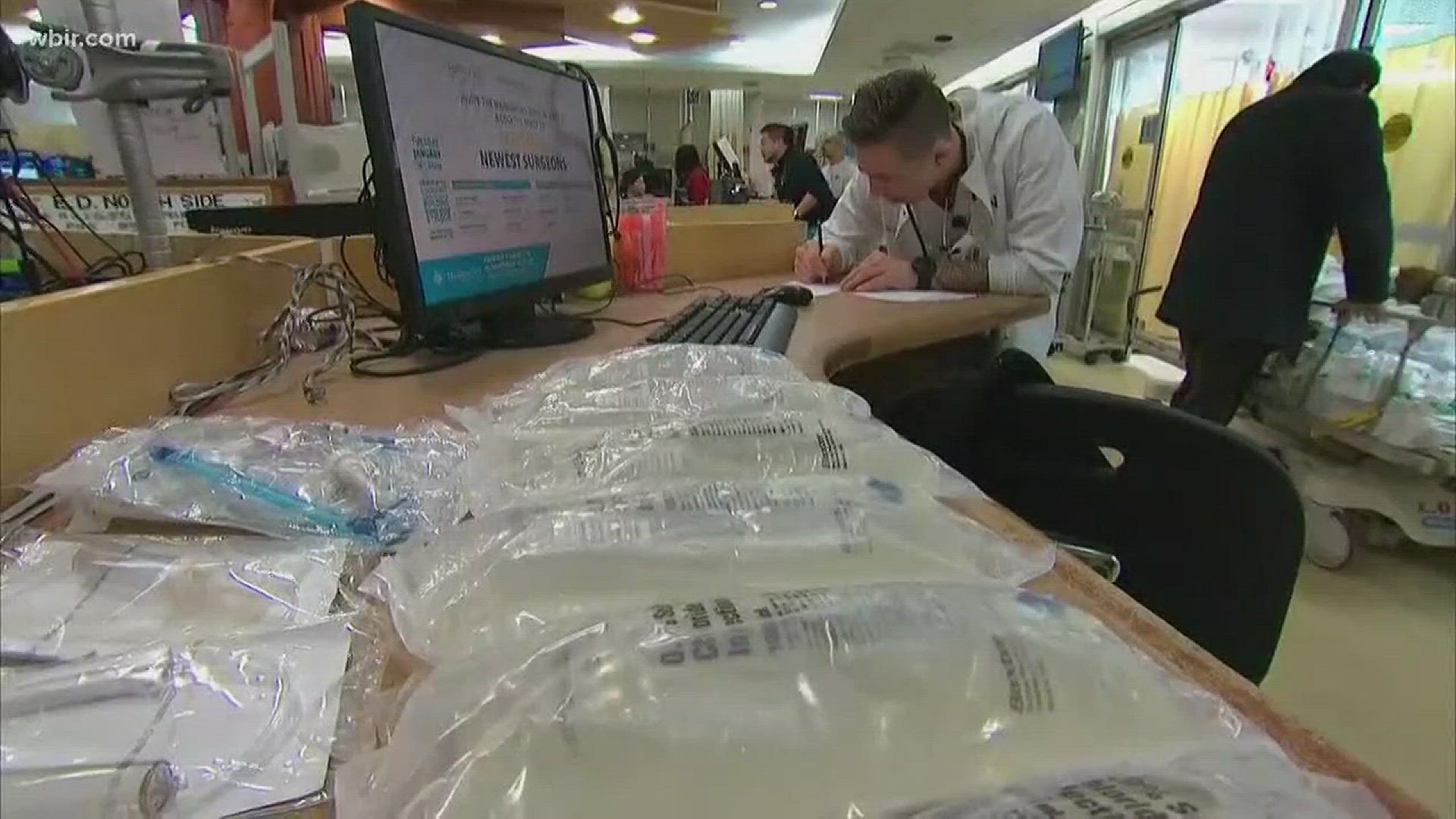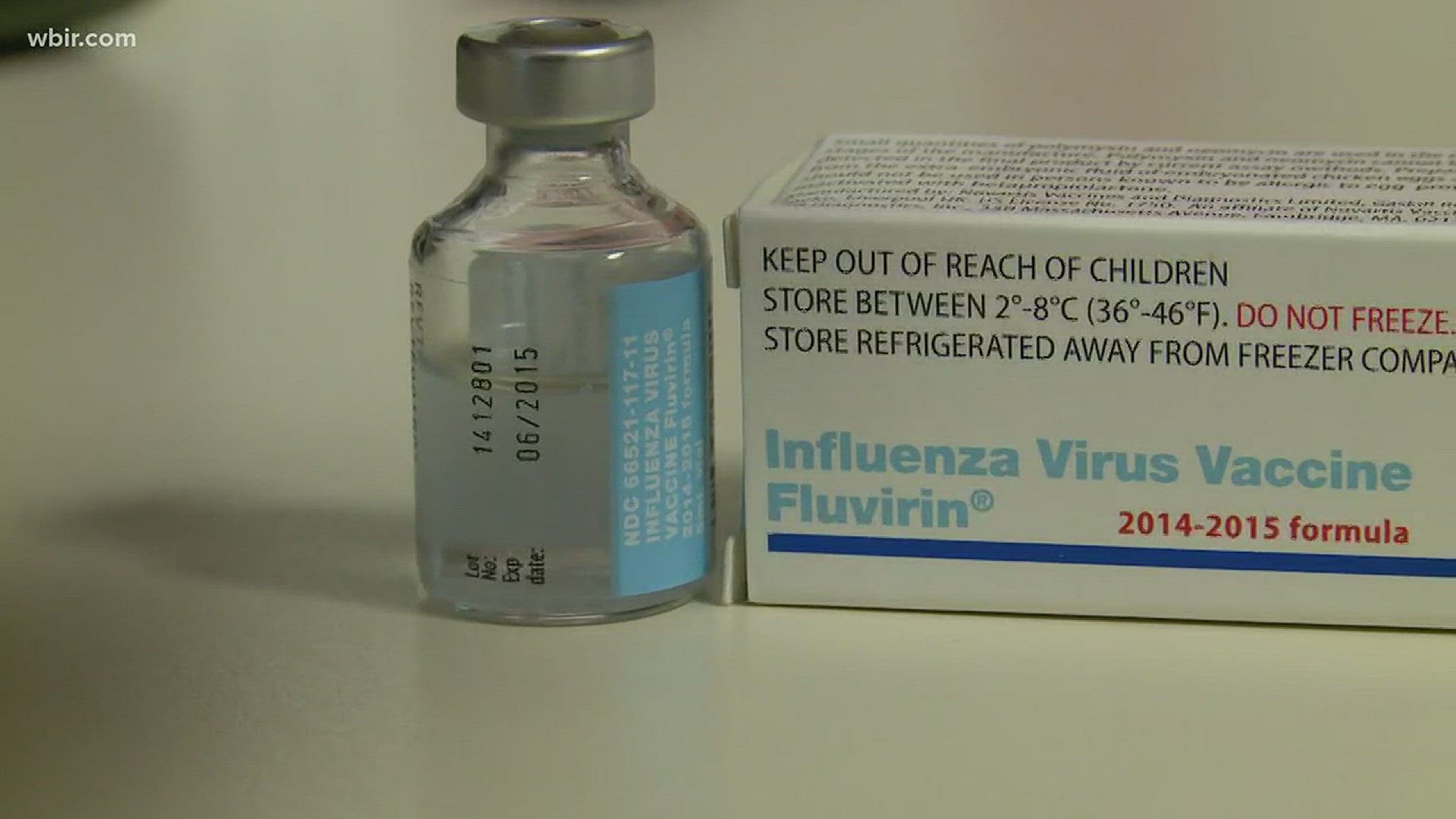East Tennessee hospitals say they're feeling the impact of a saline-solution shortage that has been worsened by Hurricane Maria.
The shortage of the ubiquitous intravenous bags of saline has been going on since 2014, but the supply got hit even further when the hurricane damaged the country’s biggest supplier in Puerto Rico last fall.
And as flu season starts to kick into high gear, hospitals and clinics worry the demand will get pushed over the edge.
“We have seen an increase in the number of flu cases compared to last year. If this continues the current trend, we are worried that this will stress our system and make us run out of IV fluids,” Dr. O’Neill Britton, chief medical officer at Massachusetts General Hospital in Boston, told NBC News.
Tennova Healthcare, Fort Sanders Regional Hospital and the University of Tennessee Medical Center all told 10News they are making adjustments to deal with the shortage.

“We continue to deal with shortages by working with team members to change practices and prescribing habits that in turn help to preserve the products that we have for those who clinically have no other alternatives," Dr. Jerry Epps, senior vice president and chief medical officer at UT Medical Center, said in a statement. "We continue to work with our suppliers and manufacturers to meet our patient’s needs. Unfortunately, both Baxter and BBraun are still being affected by Maria.”
Russell Mariott, vice president for marketing and development for Tennova Healthcare, said they are "taking all actions to ensure safe patient care."
"To manage the shortage, we have implemented alternative methods of medication administration and are working through other FDA-approved sources to obtain IV solution," Mariott told 10News in an email.
Influenza is widespread in the U.S. but has not quite reached epidemic levels, the Centers for Disease Control and Prevention says. Flu season usually peaks in January and February in the United States. It kills between 2,000 to 56,000 Americans every year, depending on how bad the flu season is, and it puts 140,000 to 710,000 people into the hospital, according to the CDC.
The Tennessee Department of Health has recorded four flu-related deaths in the state during the 2017-2018 flu season. Two children in East Tennessee have died of the flu this season, as well as one child and a pregnant woman from Middle Tennessee.
The Chief Medical Officer for Covenant Health, which oversees Knoxville's Fort Sanders Regional Hospital, said their hospitals are working together to address the shortages of IV solution and IV nutrition bags.
"Over the past couple of months Covenant Health hospitals have managed existing IV resources, shared supplies throughout our health system, and found alternative manufacturers to help cover any delivery gaps," Dr. Mark Browne, Covenant Health senior vice president and Chief Medical Officer, said.
Browne said nurses have been using different methods of delivery medication, such as administering antibiotics directly into an IV line instead of using a bagged IV solution.
"As a result, our patients have continued to receive all medications without interruption, and Covenant Health has not experienced any cost increase," he said.

The Food and Drug Administration says relief is on the way. Baxter, one of the main producers of IV saline fluids, got power back to its Puerto Rican plant in late December after weeks of outages.
“Based on the information we’re receiving from the companies, we expect that the shortage of IV saline fluids will improve in early 2018, with continuing improvements in the weeks ahead,” FDA commissioner Dr. Scott Gottlieb said last week.
“Given the improvements we’ve seen over the last few weeks, I’m optimistic that supplies of IV saline and amino acids will increase over the next few weeks and the stress of the shortage will begin to abate, even if the shortages will not be fully resolved immediately. That said, the production situation in Puerto Rico remains fragile.”
Baxter makes what are called mini-bags of saline in Puerto Rico — smaller 50 ml and 100 ml bags used to dilute and administer cancer chemotherapy drugs, antibiotics and other treatments.
The shortage has forced hospitals to use bigger, less convenient bags.
“The small bags disappeared and we accommodated for that by making things ourselves and doing conservation techniques,” said Britton, the chief medical officer at Mass General.
“And pretty quickly, we ran through medium-sized bags. Nationally, everybody was doing the same thing, so as soon as we switched it from one product to the next, that quickly became a shortage in its own right,” Britton added.
Now even the large bags of saline have sometimes been delivered only intermittently. “That set off red flags like ‘what happens if the large bags disappear?’” Britton said.


